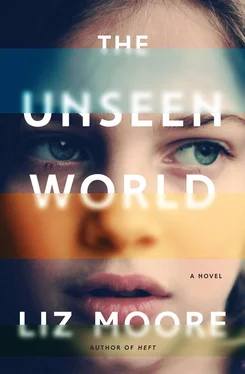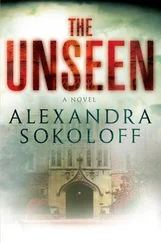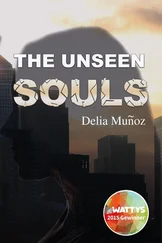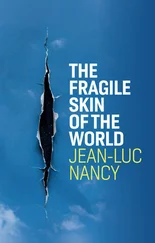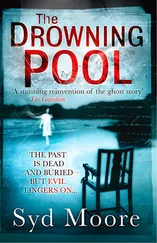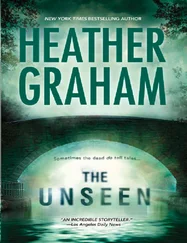Now, entering their house, Liston said, “My God, David, it’s hot ,” except her accent made it sound like hut . Of Liston’s many verbal particularities, Ada’s favorites were as follows: bahth , Liston said, for bath; and hoss for horse; and she used various expressions passed down to her by her mother that Ada rolled around in her head like marbles. “He’s been in and out like a fiddlah’s elbow,” she’d said once about David, who had a habit of letting his office door slam, not out of anger but out of forgetfulness.
Solemnly Ada brought a drink to her and Liston thanked her and called her her favorite girl, and she asked Ada to tell her why it was that her sons weren’t so polite, asked her to please explain what was wrong with them. David retreated to the kitchen to keep things in order and then the doorbell went again, and this time it was Liston who opened it.
The man on the porch was wearing leather driving shoes and fitted red shorts the color of the cooked lobsters and a white button-down linen shirt that looked cool despite its long sleeves, which he had rolled up to his elbows. He was impressively tan. Dark hair coated his calves and rose up from the top button of his shirt and rose thickly back, in waves, from his noble brow.
“Are you Ada?” he asked her, after greeting Liston, and she added another accent to her mental list of sounds to ponder and reproduce. She nodded.
“A pleshure. I’m Giordi,” he said, and introduced himself by kissing her one time on each cheek. Ada was used to this exchange from interactions with her father’s many European colleagues, and from the many graduate students who had come to the Bit from other parts of the world; but it never failed to fluster her and to make her feel impossibly self-conscious, aware of her physical self in a way she did not like to be. There was the feeling always that she should be prettier than she was. That she should be better dressed, more put together. Like Giordi. Like some of the other members of the lab, Charles-Robert, Hayato. Unlike Liston, who dyed her hair a tinny red and sometimes wore clothes that were too young for her, and unlike David, who prided himself on caring more about almost everything than clothing. Food, yes; science, yes; Ada, yes; clothing, no. And he expected this of Ada also — that she would rank her wants in the same order he ranked his own. The wants she did not tell him about (cable television, Nancy Drew books, a waterfall of bangs like Liston’s, a hair accessory called a banana clip that looked something like a foothold trap) felt to Ada shameful and perverse. They felt to her ignoble.
“Would you like a drink?” she asked Giordi, as she had been taught, and then she led him down the hallway toward the kitchen, where David greeted him. Giordi took the gin rickey in his hands, putting his lips to the rim of the glass, ignoring the straw.
“Did you made these?” he asked Ada, about the drink, and she told him that she did, fixating on the grammatical mix-up he had let slip, pondering its structure.
“Delicious,” he said. “Wherever did you learn.”
“From my father,” she told him.
She had learned everything from her father.
Ada was twelve years old. She would have been in seventh grade that year, if she had been enrolled in a school. She had never kissed a boy, never held hands with a boy. Had never, in fact, intentionally been within the vicinity of a boy her own age for more than a few minutes. Nor a girl. Her only interaction with boys and girls her own age had been with the children of her father’s colleagues, who in general led more normal lives than she did— normalcy being a condition that her father disdained and she revered. And even these interactions had been cursory. Ada’s behavior around these children was absurd. When she got near them she drank them up. She took them in. She was silent. She watched them like a television show. She took note of every turn of phrase they used. Like , they said. Rad. Prolly. No way. As if. Freaky. Whatsername. Hang out. What’s up? Duh. Creep. Freaked out . They were freaked out by her, probably. She didn’t blame them.
Ada was much more accustomed to spending time with adults, and tonight she would have been very much at ease except that she could sense her father’s tension and it made her tense. He had always been a perfectionist when it came to his dinners, but tonight was extreme: he had been preparing for days, writing down lists, stopping at the store each evening for things he had forgotten. She could not articulate what was different in his demeanor, but it triggered a deep-seated uneasiness in her. It was a hair in her mouth or sand in her shoe. She looked at her father now: he was lifting up the mixing bowls to show Giordi the cooked lobsters on the countertops.
“ Aragosta, sì? ” asked her father, who prided himself on speaking enough of every language to get by in restaurants at the conferences he went to in Europe, in Asia.
But Giordi shook his head. “Those are astici ,” he said. “ Aragoste have the little things like. .” he said, and he mimed spikes. “And they don’t have the big. .” and he mimed claws, pinching his thumbs and his tightened fingers together.
“ Astici ,” said David, and Ada knew from his expression that he was attempting to file the word in a deep recess of his mind.
The other members of the lab arrived next, Hayato and Frank, and then Joonseong — whom she quickly realized was neither Southern nor female — and Edith — whom she quickly realized was not prim, but young and pretty. The only missing member of the lab was Charles-Robert, whose daughter had a soccer game. Ada gave each of them drinks in the living room and watched everyone as they fell into patterns of conversation: Liston and Hayato, the fun ones, were huddled in a corner, laughing about something or someone at work; they’d continue to huddle until one or the other realized that they were hovering on the verge of rudeness, and then they would break into conversation with someone else. Edith and Joonseong were speaking with Frank, who was much more polite than the rest of the group, engaging them in various lines of inquiry about their background and their families and their home countries and their accommodations in Boston.
Ada hovered in the background until Liston noticed her and waved her over, and she put a strong and steady arm around her, brought her in close to her side, and squeezed.
“Good drinks, kiddo,” said Liston. Ada sank into her side, grateful for something she couldn’t articulate.
At 8:00, Ada’s job was to ask all the guests, politely, to be seated for the meal.
The night before, David had made place cards: before she’d gone to bed she’d seen him fashioning them with index cards and a ballpoint pen, sitting at the kitchen table, the tip of his tongue just visible between his lips. Now they were assembled on the rectangular table. Ada, sitting between Edith and Joonseong, wished that she had been seated next to Liston, her favorite, or Giordi, whom she had decided was quite handsome — but she knew that one of the things that David expected of her was that she would help him to entertain his guests. She took this role seriously, and, in preparation for the night, had dreamed up several topics of conversation that she felt ready to introduce if necessary, culled from the newspaper and from the books she was reading.
David was passionate about cooking — to him it was a cousin of chemistry — and the first course was chilled cucumber soup, made in a blender, thickened with cream, which she helped him to transport from the kitchen, careful not to spill. “A regular Julia Child,” said Liston. Ada brought cold white wine to the table and poured it neatly into every glass, including a splash into her own: since she turned twelve, David had been allowing her a quarter of a glass on special occasions. The several sips of wine she was allotted made her feel warm and capable, made her feel as if there were real possibilities before her in the universe, that they were hers for the taking.
Читать дальше
